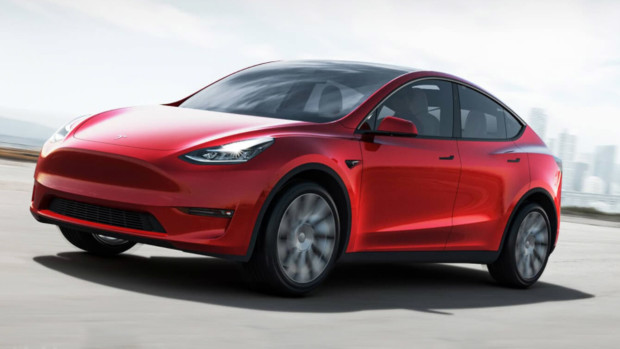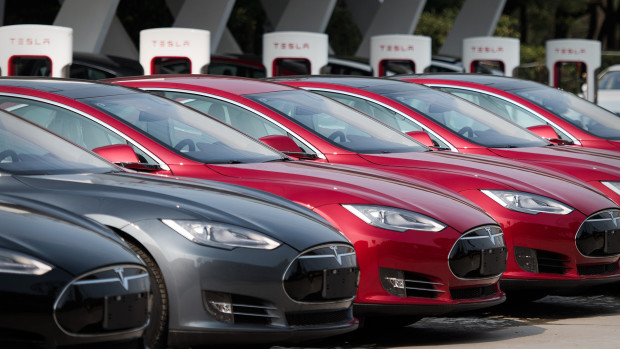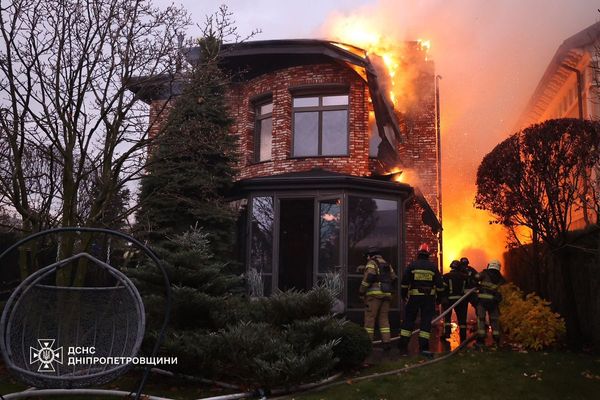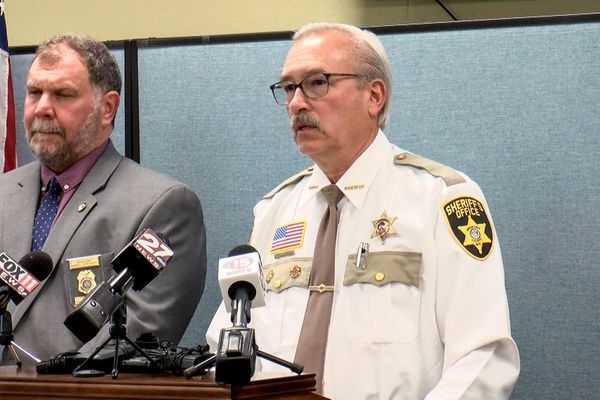
Tesla, the leader in the electric vehicle industry, enjoys its status as king of the hill, as it on July 2 reported its best quarterly delivery results in the second quarter with 466,140 EVs delivered and about 889,000 for the first half. Those figures put the Austin, Texas, EV maker almost on target to meet its 1.8 million delivery goal for the year.
Reaching its record numbers wasn't accomplished without a few hiccups along the way, though. In March, the National Highway Traffic Safety Administration opened an investigation into 100,000 Tesla 2023 Model Y SUVs over an issue with steering wheels coming off while driving. The Model Y is one of Tesla's (TSLA) -) bestsellers.
Forget Tesla – We’re all-in on this EV stock

JOHANNES EISELE/AFP via Getty Images
Having Problems With Recalls
The steering wheel recall was followed by a recall of 2,649 Tesla Model S vehicles in China that were produced in the company's Fremont, Calif., plant between Oct. 14, 2015 and Aug. 23, 2020. The safety recall was issued due to a problem with the front trunk, or frunk, latch lock that could cause the front lid to pop open while driving. The issue with the frunk poses a safety risk, as forward visibility could be obstructed if the front trunk lid pops open while driving.
The Model S recall followed a previous recall on Dec. 31, 2021, when Tesla recalled 19,697 Model S vehicles in China for similar reasons. The vehicles affected by the recall were manufactured between Jan. 21, 2015 and Nov. 18, 2020.
These equipment defects haven't been the only recalls that Tesla has issued. The company in May recalled about 1.1 million vehicles on Chinese regulators' orders for a software update that allowed for changes to braking methods and more warnings about the use of accelerator pedals. Regulators said it ordered a recall of some imported Model S, Model X, Model 3 and domestically produced Model 3 and Model Y vehicles with a production date between Jan. 12, 2019 and April 24, 2023.
In February, Tesla issued a safety recall of 362,758 Model S, Model X, Model 3 and Model Y vehicles for an over-the-air software update of its Full Self-Driving feature. Tesla CEO Elon Musk considers the use of the word "recall" a case of semantics believing that using the word recall for an over-the-air software update is "anachronistic and just flat wrong!" according to one of Musk's tweets. The NHTSA, however, considers this a recall, and so that's what it is.
Alleged Unintended Acceleration Prompts Investigation
The NHTSA, however, has reopened an investigation into Tesla that it closed in 2021, InsideEVs reported, which covers about 1.8 million EVs sold in the US, including Model S, Model X, Model 3 and Model Y vehicles. The federal agency in January 2020 received a petition regarding a sudden unintended acceleration problem with Teslas, but denied the petition a year later
The safety regulator had a change of heart, however, after Roland Belt of Plymouth, Minn., sent a petition to the Office of Defects Investigation on June 29 regarding unintended acceleration of Tesla EVs that alleges there is a design flaw in the inverter design that allows an intermittent higher electrical current to flow through a vehicle's 12-volt electrical system. The additional voltage draw could be caused by a demand for more power from an accessory, which could also prevent Tesla's diagnostics system from identifying it as a fault, InsideEVs said.
The petition claims that the fault could explain unintended acceleration incidents reported by Tesla owners. Some people with technical knowledge of Tesla vehicles have disputed the design flaw claims on Twitter, but NHTSA will have the final say after its investigation is complete.
Tesla did not immediately respond to a request for comment.







